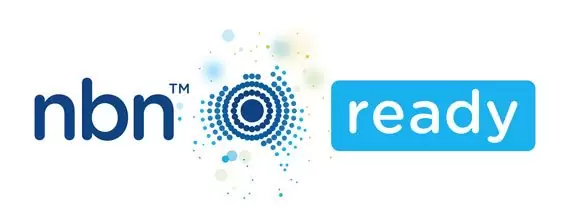Calculating the price of innovation: A breakdown of IP PBX cost
Maintaining clear and reliable communication channels is critical to staying competitive. The rise of remote work, hybrid office models, and digital tools means businesses need robust communication systems to connect teams, clients, and stakeholders. One of the most significant innovations in this field is the IP PBX system, which offers businesses greater flexibility, cost savings, and advanced features compared to traditional telephone systems.
An IP PBX system is a cloud-based solution that uses the internet to manage calls, eliminating the need for costly, outdated hardware and physical phone lines. Unlike traditional PBX systems, which rely on analogue technology, IP PBX systems provide advanced communication features such as call routing, voicemail-to-email, and analytics, all while reducing operational costs.
Understanding the IP PBX cost is essential to making informed decisions about upgrading their communication systems. With businesses reporting savings of up to 50% after switching to VoIP, the benefits are clear.
This blog will explore why IP PBX systems are a valuable investment for your business, what influences the cost, and how you can make the most of these systems to modernise your operations and future-proof your communications.
Why IP PBX systems are a valuable investment
Improved flexibility
One of the most compelling reasons for businesses to adopt IP PBX systems is the increased flexibility they offer. With features like call routing, companies can direct calls to the right department or individual, regardless of location. This is especially beneficial for businesses with remote workers, multiple locations, or a distributed workforce. The scalability of IP PBX systems also allows businesses to adjust their communication capacity as needed. Whether your company is expanding or reducing its workforce, the system adapts, providing a cost-effective solution that grows with your needs.
Enhanced productivity
IP PBX systems integrate seamlessly with other modern business tools, boosting productivity across the organisation. For example, features like voicemail-to-email ensure no messages are missed, and call analytics can provide insights into communication patterns, helping managers make more informed decisions. These features streamline workflows and ensure employees can stay connected with minimal disruption. For Australian businesses, this means increased efficiency, more time to focus on core business activities, and ultimately, a stronger competitive edge.
Lower long-term costs
One of the primary attractions of IP PBX systems is their potential for lower long-term costs. Traditional PBX systems require significant upfront investment in hardware, installation, and maintenance. On the other hand, IP PBX systems are cloud-based, meaning businesses can save on physical infrastructure and maintenance costs. With a VoIP phone price that’s typically lower than traditional phone systems, companies can reduce their communication expenses significantly. This is particularly advantageous for small to medium-sized businesses that need to watch their budgets closely but still want access to sophisticated communication features.
Seamless scalability
The scalability of IP PBX systems means that businesses can expand their communication capabilities without costly upgrades or new installations. Whether you need to add new users, integrate new features, or connect additional devices, IP PBX systems provide a flexible solution that adapts to your business needs. For growing businesses, this can mean avoiding the substantial capital investment typically required to upgrade traditional PBX systems.
Advanced features
IP PBX systems come with a host of advanced features that go beyond the basics of voice communication. Businesses can access call recording, call forwarding, voicemail-to-email, and more, all as part of their plan. These features improve customer interactions, increase efficiency, and provide businesses with insights that can help improve their overall operations. With advanced analytics built into most IP PBX systems, businesses can monitor call quality, track performance, and gain valuable insights into their communication processes, ensuring a more streamlined and effective business model.
What influences IP PBX cost?
While IP PBX systems offer clear advantages, understanding the factors that influence IP PBX cost is essential for businesses looking to make a strategic investment. Several elements play a role in determining the cost of implementing an IP PBX system:
Provider pricing models
IP PBX pricing can vary depending on the provider and their pricing structure. Some providers offer monthly subscriptions, while others may offer a one-time setup fee. Monthly subscriptions typically provide ongoing support, regular updates, and scalability as your business needs evolve. On the other hand, a one-time payment option may be ideal for companies that prefer to make a single, upfront payment and avoid recurring fees. It’s important to understand the total cost of ownership, including both short-term and long-term expenses, before deciding on a provider.
System size and complexity
The size and complexity of your business operations will have a direct impact on the IP PBX cost. For small businesses with fewer than 10 employees, the cost of implementing an IP PBX system will generally be lower than for larger companies with hundreds of employees. Larger organisations may require additional features, greater system capacity, and more advanced customisation, all of which can increase costs. Understanding your business’s communication needs and choosing the right plan is essential for getting the most out of your investment.
Hardware and integration needs
While IP PBX systems are cloud-based, they often require some hardware such as IP phones, headsets, or specialised devices. Also, businesses may need to integrate the system with existing communication tools, which can add to the overall cost. For example, businesses that need to integrate their IP PBX system with a CRM or other business software will need to factor in the cost of these integrations. Choosing an IP PBX provider that offers easy integration with your existing hardware and software can help mitigate some of these costs.
Support and maintenance
The cost of support and maintenance is another factor to consider when evaluating IP PBX cost. While cloud-based IP PBX systems generally require minimal on-site maintenance, ongoing technical support is often needed to ensure the system runs smoothly. Some providers offer 24/7 customer support, while others may provide more limited hours. For Australian businesses, having access to local support is critical, as it ensures quicker response times and a better understanding of local business needs. Make sure to factor in the cost of ongoing support when evaluating your options.
Customisation options
Many providers offer customisation options to tailor the IP PBX system to the specific needs of your business. Custom features such as call routing, voicemail setups, or even custom integrations can affect the overall cost. When considering the cost of an IP PBX system, businesses should evaluate whether they require custom features or whether the standard offerings will suffice. Customisation can provide significant benefits, but it’s important to weigh these benefits against the additional costs.
Reap the benefits of IP PBX systems for your business
In summary, understanding the IP PBX cost is essential to making an informed decision about your business's communication needs. By considering factors such as provider pricing models, system size, integration requirements, and support, businesses can find a solution that offers the best value for money. With lower long-term costs, seamless scalability, and advanced features, IP PBX systems provide a powerful, future-proof communication solution that helps your business stay competitive in a rapidly evolving digital landscape.
With flexible pricing options, local support, and cutting-edge features, IP PBX systems are a wise investment for businesses looking to modernise their communications. Start exploring VoIP phone prices and how an IP PBX system can help streamline your operations and future-proof your communication strategy today.
FAQs
Are IP PBX systems suitable for remote work setups?
Yes, IP PBX systems are designed to support hybrid and remote work environments, ensuring seamless communication across locations.
Can IP PBX systems grow with my business?
Absolutely. IP PBX systems are scalable, allowing you to expand users and features as your business grows without significant additional costs.
Do IP PBX systems require extensive maintenance?
Cloud-based IP PBX systems generally require minimal maintenance, with providers handling updates and troubleshooting remotely.



